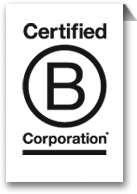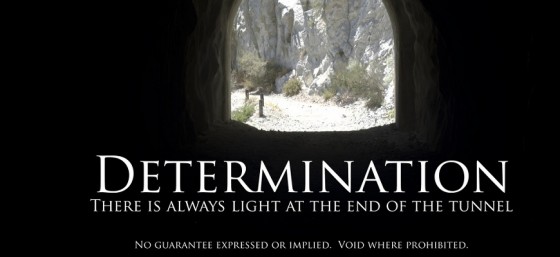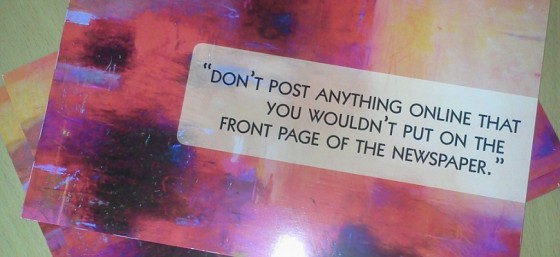An exciting bill was approved by the Arizona legislature this year that will allow people to create B corporations in Arizona starting in 2015. (Apparently it will take them until then to update the Arizona Corporation Commission website with the forms and information.)
Benefit corporations, or B corporations, are like other businesses except that they have “higher standards of corporate purpose, accountability, and transparency.” In other corporations, the people in charge have an obligation to make the most money for their shareholders, and if the shareholders believe that management isn’t doing that, they can sue the company. In a B corporation, the company has other motives for being in business besides maximizing profits and the shareholders are on board with that plan. These are companies like Patagonia and Ben & Jerry’s.
 Earlier this year, I attended a seminar organized by the Arizona Tech Council on B corporations where we learned about some of the benefits of having B corporations in your community. B corporations are 60% more likely to donate at least 10% of their profits to charity compared to other sustainable businesses and they are 18% more likely to use suppliers from low income communities compared to other sustainable businesses. These companies are four times more likely to give employees paid professional development opportunities compared to other sustainable businesses. In 2011, 95% of B Corps paid a living wage to all employees and were three times as likely to offer health insurance to all employees and have retirement plans.
Earlier this year, I attended a seminar organized by the Arizona Tech Council on B corporations where we learned about some of the benefits of having B corporations in your community. B corporations are 60% more likely to donate at least 10% of their profits to charity compared to other sustainable businesses and they are 18% more likely to use suppliers from low income communities compared to other sustainable businesses. These companies are four times more likely to give employees paid professional development opportunities compared to other sustainable businesses. In 2011, 95% of B Corps paid a living wage to all employees and were three times as likely to offer health insurance to all employees and have retirement plans.
Until we have B corporations in Arizona, companies can become B-corp certified if they meet the B Lab’s “rigorous standards of social and environmental performance, accountability, and transparency.” There are at least four B-corp certified businesses in Arizona, including Goodmans Interior Structures and DIRTT Environmental Services. A business doesn’t have to have a higher social cause as its obvious purpose for being in business. Many small businesses who provide traditional goods and services can be B-corp certified.
Over 600 companies have become or B-corp certified. If you want to learn more about B corporations including how to become B-corp certified, please visit their website. If you need help deciding whether you should become a B corporation or B-corp certified, contact your accountant or business attorney for assistance.
You can connect with me on Twitter, Google+, Facebook, YouTube, LinkedIn, or you can email me.
You can also subscribe to the Carter Law Firm newsletter.
Please visit my homepage for more information about Carter Law Firm.









